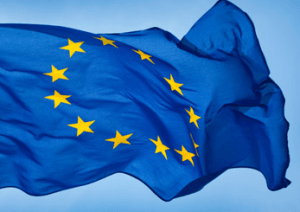EU to prioritise investment towards greening Ghana
 The European Union (EU) Delegation to Ghana will this year prioritise supporting Ghana’s efforts at building a circular economy and sustainable agriculture, as part of a wider global goal set by the European Council to neutralise climate change.
The European Union (EU) Delegation to Ghana will this year prioritise supporting Ghana’s efforts at building a circular economy and sustainable agriculture, as part of a wider global goal set by the European Council to neutralise climate change.
Madam Diana Acconcia, the Head of the EU Delegation to Ghana, said this at a breakfast meeting with a select group of editors, in Accra, at which she shared some of the priorities for 2021, of Ghana’s development partner.
She expressed the EU’s commitment backing innovation, solutions and best practices to combat climate change, alongside combating the Covid-19 pandemic.
A circular economy, according to the World Economic Forum, is an industrial system that is restorative or regenerative by intention and design.
It replaces the end-of-life concept with restoration, shifts towards the use of renewable energy, eliminates the use of toxic chemicals, which impair reuse and return to the biosphere, and aims for the elimination of waste through the superior design of materials, products, systems and business models.
In a circular economy, new products are made with materials from old ones – thus encouraging the practice of reusing, repairing, refurbishing and recycling existing material and products, to extend their life cycles, for as long as possible.
Madam Acconcia expressed the EU’s commitment to the “Boosting Green Employment and Enterprise Opportunities in Ghana – (GrEEn) project”, launched in September 2020.
The four-year joint project, by the EU with the Embassy of the Kingdom of the Netherlands in Ghana, the United Nations Capital Development Fund and the SNV, is being implemented in the Ashanti and Western regions.
GrEEn is funded under the European Union Emergency Trust Fund for Africa, set up by European and African partners in 2015 to deliver an integrated and coordinated response to irregular migration, forced displacement and the diverse causes of instability, including climate change.
The project is helping to address the root causes of irregular migration by supporting sustainable and climate resilient local economies, green jobs and development in regions of departure, transit and return.
It is being implemented in collaboration with the Ministry of Local Government and Rural Development, with other relevant ministries, alongside the Metropolitan, Municipal and District Assemblies of the two regions.
The SNV is working with a variety of partners, including private sector, vocational and other training service providers, incubation and acceleration hubs, relevant Ministries, the Ghanaian diaspora, the International Organisation for Migration (IOM), as well as other donors and relevant actors working on green jobs and enterprises.
Madam Acconcia also talked about the EU’s continued support toward empowering the private sector, women and combating child labour, especially in the cocoa and fisheries sectors to ensure the sustainability of resources and the wellbeing of the workforce.
It will also sustain its assistance towards boosting the capacity of anti-corruption institutions such as the Judicial Service.
There would also be cultural diplomacy activities such as an arts exhibition, planned for Thursday, February 4, 2021.
The virtual competition, dubbed: “In Dialogue” for young artists in the EU and Ghana, will be hosted by the Alliance Francaise. It seeks to build the capacities of young artists to be innovative and creative and also create better understanding and friendship.
It would also enhance the relationship between the EU and Ghana in the culture and art industry.
Madam Acconcia said a number of activities would be planned to expose Ghanaian youth to educational and other opportunities in the EU.
Source: GNA
